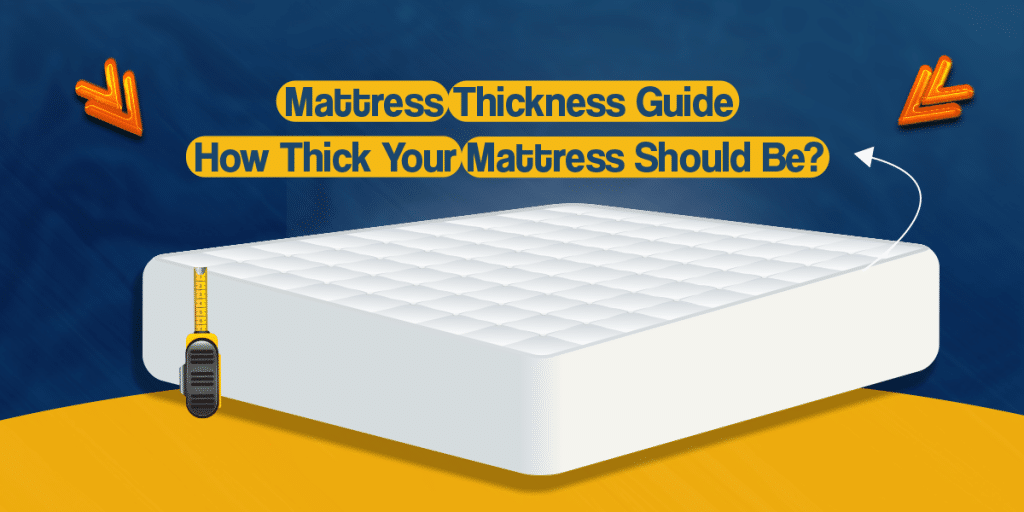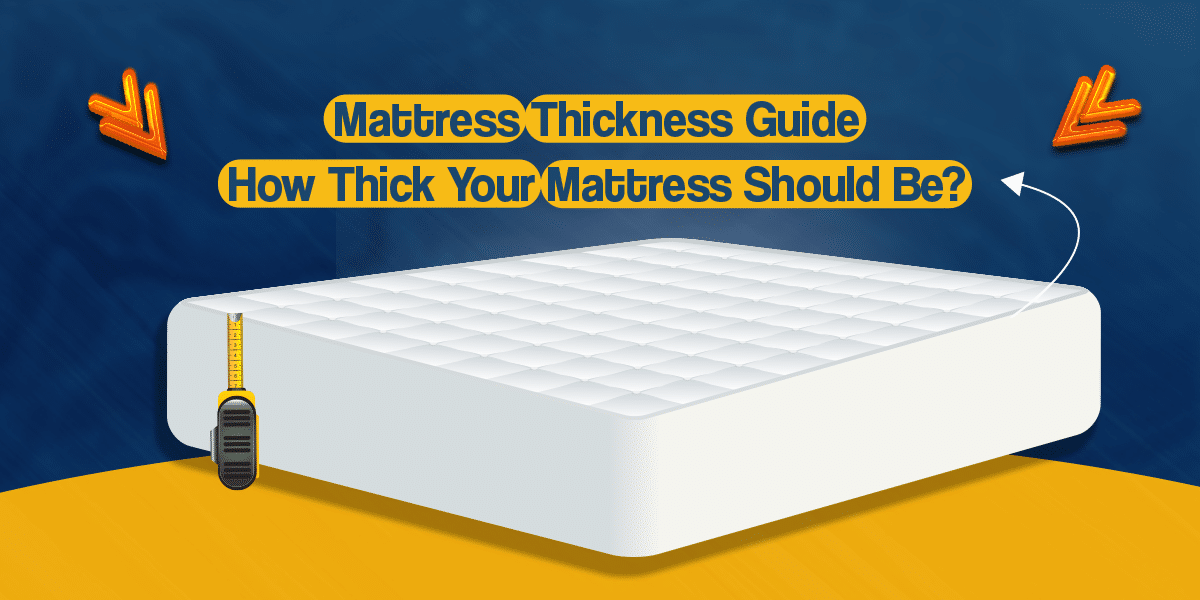
Introduction
When choosing the right mattress, mattress thickness plays a crucial role in ensuring a comfortable and supportive sleep experience. Whether you are a side sleeper, a back sleeper, or someone who prefers a plush feel, understanding the right thickness can make all the difference. From standard sizes to custom options, finding the perfect balance of comfort and support is essential.
What is Mattress Thickness?
Mattress thickness refers to the height of the mattress from the base to the top surface. It typically ranges between 6 inches and 18 inches, with different layers contributing to its overall feel and support. The ideal thickness depends on personal preference, sleeping habits, and health considerations.
Standard Mattress Thickness and Heights
Mattresses come in various thickness levels, catering to different comfort and support needs. Here’s a general guide to standard mattress thickness:
| Mattress Type | Thickness (inches) | Suitable For |
|---|---|---|
| Thin | 6–8 inches | Guest rooms, kids, minimalists |
| Medium | 9–12 inches | Most adults, couples, comfort seekers |
| Thick | 12+ inches | Luxury seekers, heavy individuals |
Choosing the right thickness depends on the level of support required and your sleeping preferences.
Factors to Consider When Choosing Mattress Thickness
When selecting the perfect mattress, consider these factors to ensure you get the most comfortable and supportive sleep:
- Body Weight
- Heavier individuals may require thicker mattresses to provide adequate support and prevent sinking.
- Lighter individuals can opt for thinner mattresses without compromising on comfort.
- Sleeping Position
- Side sleepers may prefer medium to thick mattresses for better cushioning.
- Back sleepers need medium-firm support, while stomach sleepers should opt for a firmer, thinner mattress.
- Health Considerations
- People with back pain should opt for a thicker mattress with proper orthopedic support.
- Conditions such as arthritis may require plush, thick mattresses for joint relief.
- Bed Frame Compatibility
- Ensure your chosen mattress thickness fits well with your existing bed frame or foundation.
- Budget
- Thicker mattresses tend to be more expensive, so choose a mattress that aligns with your budget without compromising quality.
Mattress Thickness According to Weight
Weight distribution plays a key role in determining the ideal mattress thickness. Here’s a guide based on body weight:
| Weight Category | Recommended Thickness |
|---|---|
| Below 60 kg | 6–8 inches |
| 60–100 kg | 9–12 inches |
| Above 100 kg | 12+ inches |
Sleep Positions and Mattress Height Preferences
Your preferred sleeping position significantly affects the required mattress height:
- Side Sleepers – Require a softer and thicker mattress (10–14 inches) to cushion pressure points like hips and shoulders.
- Back Sleepers – Benefit from medium-thick mattresses (9–12 inches) for balanced support.
- Stomach Sleepers – Prefer firmer and thinner mattresses (6–10 inches) to prevent spinal misalignment.
Common Mattress Thickness Categories
Thin Mattresses (6–8 inches)
Ideal for:
- Kids’ rooms
- Bunk beds
- Temporary use
Thin mattresses are cost-effective and space-saving but may lack sufficient support for long-term use.
Medium-thick mattresses (9–12 inches)
Perfect for:
- Everyday use
- Guest rooms
- Combination sleepers
This thickness provides a balance between comfort and support, making it a popular choice.
Thick Mattresses (12+ inches)
Best for:
- Luxury seekers
- Heavy sleepers
- People with back pain
Thick mattresses often feature multiple layers, including plush comfort layers and firm base support.
Conclusion
Choosing the right mattress thickness is a personal decision based on comfort preferences, sleeping habits, and health needs. Whether you prefer a plush, cloud-like feel or a firmer, more supportive surface, understanding your requirements can help you make an informed decision.
FAQs
The standard mattress height ranges between 8 and 12 inches, which offers a balance of comfort and support for most sleepers. However, higher-end models can go up to 14 inches or more for enhanced luxury and cushioning.
For individuals weighing over 100 kg, a mattress with a thickness of at least 12 inches is recommended. This ensures proper support and prevents excessive sinking, maintaining spinal alignment and comfort.
Not necessarily. While thicker mattresses provide enhanced support and luxury, they may not be suitable for everyone. Factors such as body weight, sleeping position, and bed frame compatibility should be considered.
Yes, a thicker mattress with a supportive base and plush top layers can help alleviate back pain by distributing weight evenly and providing spinal alignment. Medium-firm mattresses around 10–14 inches are often ideal.

